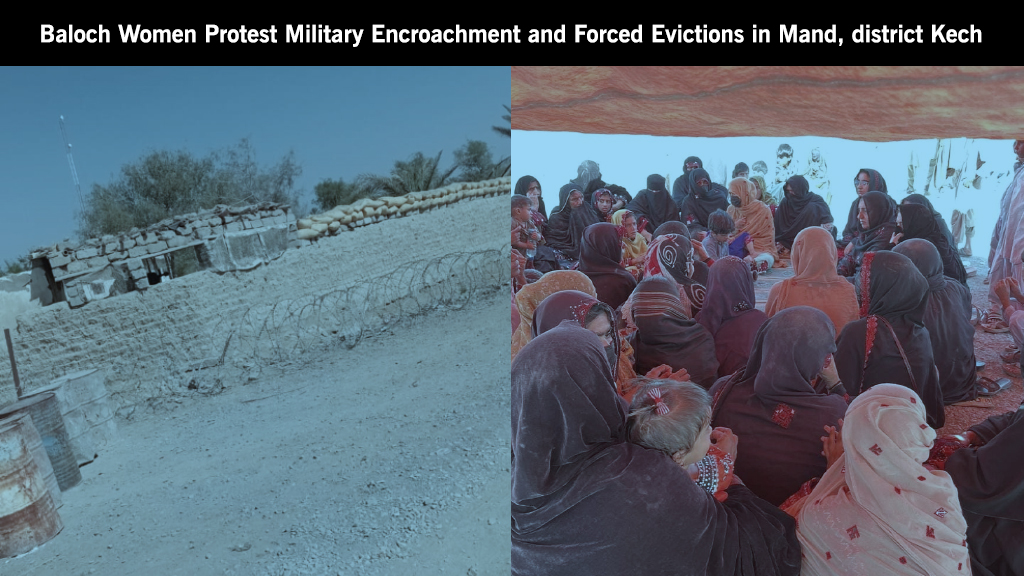Baloch Women Protest Military Encroachment and Forced Evictions in Mand, district Kech
In the Maher area of Mand, District Kech, women are staging a sit-in protest for the fifth consecutive day. The protest opposes the Pakistani forces’ occupation of their homes. The protesters have blocked the main road in Mand to express their resistance to the Frontier Corps’ (FC) attempts to displace them. The FC seeks to evict these residents from their ancestral homes to construct a new military camp in the region.
Five years ago, the FC took control of their homes by force and set up a military camp on the residents’ property. Despite frequent appeals to local authorities and influential figures, the women report that the forces continues to withhold their property from them. Recently, the FC demanded immediate evacuation of surrounding homes and lands for further expansion of military infrastructure. The residents have refused to leave their ancestral lands or permit any additional military encampments. They believe such actions pose threats to their safety, property, and way of life.
Residents of Mand believe this ongoing militarization under the guise of “security concerns” aims to displace indigenous Baloch communities and erase their historical presence. According to the community, the primary residence seized for the military camp belonged to a resident currently working in Dubai. Shortly after the forceful seizure of his home, the owner’s mother died of a cardiac attack, which the community views as a result of the trauma caused by this occupation. The seizure disrupted family ties and destabilized the lives of affected families.
The protest has drawn significant turnout, with men, women, elders, and children demanding that the FC vacate their ancestral homes so they may live with dignity and security. Tensions escalated when local elites allegedly attempted to disperse the protest by threatening the demonstrators and forcibly clearing the area with tractors. The demonstrators insist they will not end their protest until the forces completely vacate their properties. They have also called upon fellow Baloch communities and civil society to stand in solidarity and raise their voices against state-led oppression.
The protesters report severe force and intimidation by the FC, including the occupation of their homes at gunpoint, suspension of water supply, surveillance through drones, and harassment with flashlights late at night. Furthermore, many homes in the area have exposed washroom ceilings, leaving residents vulnerable to constant aerial surveillance. State forces are reportedly using drones to monitor and intimidate the population, which has intensified the psychological distress among residents and violates their privacy and dignity. These actions have disrupted the daily lives and peace of the residents, yet local authorities remain unresponsive to their grievances and fail to provide any redress.
This is not the first instance of such displacement in Balochistan. The Pakistani forces have long been involved in similar actions across the region. The China-Pakistan Economic Corridor (CPEC), once promoted as a game-changer for Baloch prosperity, has led to the displacement of thousands of indigenous people. Basic rights remain out of reach for the Baloch population. They lack essential services like education, healthcare, and infrastructure. Existing schools and hospitals, already limited in number, are often taken over for military use, reducing local access to crucial resources.

